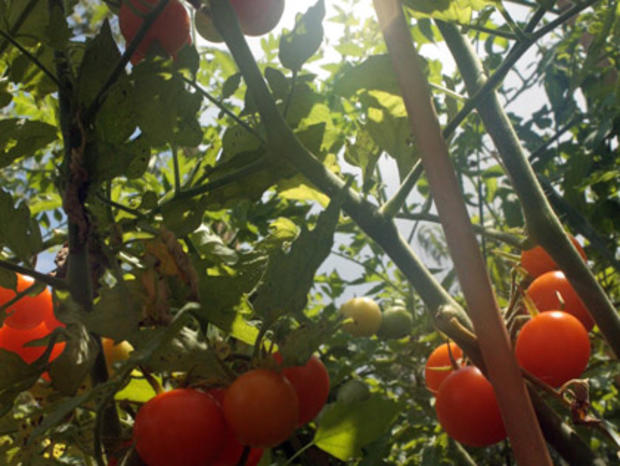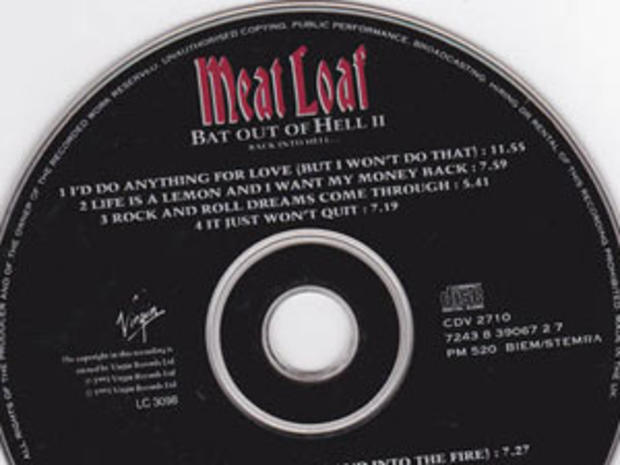Natural Garden Remedies
By Hyacynth Worth
Like raising children, planting a garden requires work.
Planting a garden while raising children requires even more work.
And planting a garden with the children you're raising -- well, I'm pretty sure there is a medal in Heaven for those who choose to engage in such endeavors.
But for all the work put in -- both with raising the kiddos and tending to the garden -- there is a harvest that makes it all worthwhile.
Unless the critters get to it first.
And if you thought the planting and tending part of gardening with kids was tough, I assume you've had to explain to devastated little ones why all the strawberries have holes in them and must be tossed or why the pumpkins are no longer after a baby bunny sneaked in and feasted on your gourds.
Something must be done to protect the harvest and against disappointed youngsters who were counting on munching their way through the garden. And it must be done naturally since most of the time our little ones eat straight from the vine without rinsing the fruits of their harvest.
Especially because we garden with our kids, we've never used pesticides or chemicals on our garden, and we've had great harvests that yield hundreds of tomatoes, dozens of peppers and more pumpkins than can be carved by two small children.
Here's a list of our favorite natural gardening tips to make all the work you've put into the garden (and the kids) so far well worth the time spent.
Chicken Wire
Even if your garden is fenced in like ours, it's likely small critters can fit through the holes and make your dinner their dinner. Placing chicken wire around the base of your fencing helps to deter small creatures from entering the garden area and making a feast of your harvest. Bonus: it's easily installed with a staple gun and it's a relatively inexpensive fix.
CDs
Not all garden critters can be deterred by fencing and chicken wire. Birds, for example, swoop in and dine on the ripened berries before most of us a have a chance to pluck them from the vines. CDs strung along strings secured on stakes make our feathery friends think twice about diving, saving your berries from becoming their snack and remaining yours; they don't like the reflection and glare from the sun shining off your Meat Loaf CD -- or any of your CDS for that matter. Aside from looking a little silly, the only other downfall of the CD strategy is showcasing the awful music we've feasted on in decades past. But look at it this way -- it's the perfect way to recycle those never-used CDs and redeem the value of that Hansen CD along with the rest of our antiquated collections.
Netting
Squirrels and chipmunks easily hop fences and don't seem to have an aversion to any of the bad music your garden's been decked out it. The only sure-fire way to keep these gatherers out of your garden is to place netting over your plants, hanging it from stakes so as not to smash the plants' growth. Exercise caution with toddler around netting; ours has become tangled in it a number of times trying to get to ripe berries. Luckily, though, extracting large creatures, like toddlers, is relatively easy on everything except for the ears.
Beer
It's nearly impossible to protect fruits and veggies from the smallest of pests with a barrier method like nets or fencing; if you want to keep slugs and snails out of your strawberries, you'll need to lure them away much like you'd lure a thirsty husband -- a smooth, tall cold one will do the trick. Actually, the beer doesn't have to be smooth and the dish that holds it would be better off shallow. Simply take a few shallow lids, place them around the plants and fill them with beer. The slugs will guzzle your booze instead of filling up on your fruits. But please be prepared; they won't walk away happy drunks as they often don't make it out of the lid, making this method a deadly one instead of a simple deterrent. Also note that you'll have to change your beer every few days.
Diatomaceous Earth
Bugs with an exoskeleton, like beetles and fleas, don't stand a chance of eating your plants if you sprinkle Diatomaceous Earth in the soil surrounding them. DE, which looks like a talc powder, is actually the fossilized remains of marine phytoplankton; it is non-toxic and safe for human consumption. The DE must be sprinkled generously around the plant so the insects have to walk through it to get to the plant. It then punctures the bugs' bodies, dehydrating them and causing death. Again, not for the faint of heart but when you're desperate to actually reap what you've sewn, it will do the trick.
Hyacynth Worth writes almost daily about motherhood, healthy living, faith and the adventurous intersection of all things at Undercover Mother.






